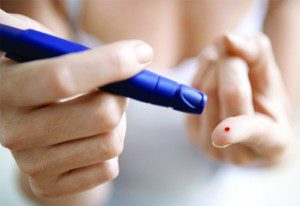By Kriston J. Kent, M.D., MPH


Study after study has confirmed, and I have witnessed, multiple patients who have reversed all of their signs, symptoms, and lab values of type 2 Diabetes using simple lifestyle modification. With the reversal of certain biometrics and lab values, it has been proven that severe problems, like blindness, kidney failure, and heart disease can be completely avoided in these patients.
On the other hand, using standard medical therapy of oral medications and/or insulin typically leads to weight gain, and a myriad of other health problems. Simply treating high blood sugar levels (a symptom of diabetes) with medications which lower blood sugar levels does not, in any way, treat the cause of diabetes. Ironically, though medications may be necessary at first, if appropriate lifestyle changes are made, then there will be no need for diabetes medications in most cases. Therefore, for patients with metabolic syndrome, prediabetes, and mild type 2 diabetes, lifestyle modification alone will likely completely reverse the disease. In patients who are diagnosed at a more advanced stage, it is often necessary to use both lifestyle modification and medication initially. However, it is rare that the patient will need medications long-term unless they refuse to make the necessary lifestyle modifications.
Making significant changes in one’s diet, stress, and physical activity level (the real causes of the disease) are not always easy. In fact, though the changes may be simple, adoption of these changes can be quite difficult. Therefore, the use of a lifestyle medicine physician, a health and wellness coach, a nutritionist, and/or a physical activity trainer greatly enhances the likelihood that the patient will be successful with a lifestyle change to reverse/prevent Type 2 diabetes.
In conclusion, patients with prediabetes and Type 2 Diabetes, certainly have a genetic predisposition for the debilitating disease. However, current mainstream treatment places emphasis on the results of the problem (high blood sugar, and insulin resistance) instead of the cause of the problem (poor lifestyle habits). I respectfully submit that most, if not all, Type 2 Diabetes could be reversed with the adoption of the appropriate lifestyle habits and when a patient finds difficulty changing their habits, professional help is available to coach them back to good health and well-being!!
Kent Center for Life
840 111th Avenue North, Suite 9, Naples, FL 34108
(239) 514.7888 | tkclife.com
 Southwest Florida's Health and Wellness Magazine Health and Wellness Articles
Southwest Florida's Health and Wellness Magazine Health and Wellness Articles
